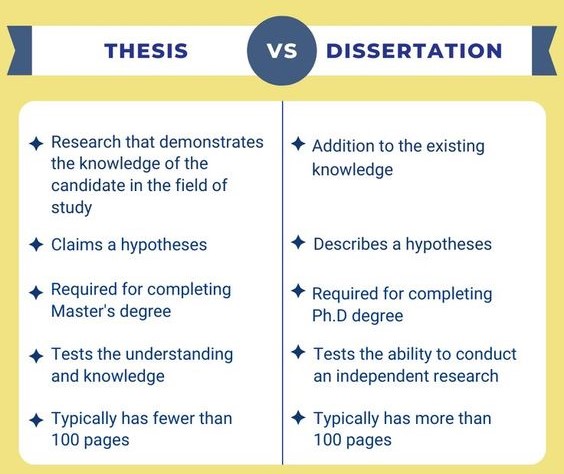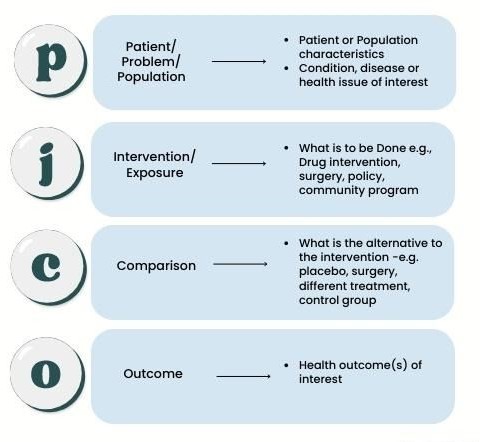
Table of Contents
A nursing thesis is the culmination of years of study and practice. It’s a chance to delve deeply into a specific area of interest, contribute to the body of knowledge, and potentially make a real impact on patient care. But crafting a powerful nursing thesis is no easy feat. It requires meticulous planning, rigorous research, and clear, concise writing.
This guide provides you with the best tips to navigate the process and emerge with a strong, impactful thesis that you can be proud of.
The Essence of a Nursing Thesis
A nursing thesis is a comprehensive and in-depth scholarly work written by a nursing student at the master’s or doctoral level. It’s the culmination of their research and a demonstration of their advanced understanding of a specific nursing topic.
Here’s a breakdown:
Purpose:
- To contribute original knowledge to the nursing profession by exploring a specific research question or problem.
- To demonstrate advanced critical thinking, analytical, and research skills in the context of nursing practice.
- To advance the student’s professional development by fostering independent learning and research capabilities.
Key Characteristics:
- Focused on a specific nursing topic: This could be a clinical issue, a patient population, a nursing intervention, or a healthcare system challenge.
- Research-based: The thesis must be supported by evidence from credible sources and, often, original research conducted by the student.
- Original contribution: The thesis should present a novel analysis, perspective, or solution to the chosen topic.
- Structured and comprehensive: It typically includes a literature review, methodology, results, discussion, and conclusion.
- Rigorous and defensible: The research process and findings must be clearly articulated and supported by evidence.

Types of Nursing Theses:
- Quantitative: Focuses on measurable data and statistical analysis to test hypotheses.
- Qualitative: Explores lived experiences, meanings, and perspectives through interviews, observations, and other qualitative methods.
- Mixed Methods: Combines quantitative and qualitative approaches to provide a more comprehensive understanding of the research topic.
Importance:
- Advances nursing knowledge: Nursing theses contribute to the body of research that informs clinical practice, education, and policy decisions.
- Improves patient care: By identifying and addressing important nursing issues, theses can lead to better patient outcomes.
- Promotes professional growth: Completing a nursing thesis equips students with the skills and knowledge necessary for advanced practice and research roles.
Example Topics:
- The impact of mindfulness-based interventions on stress levels in hospitalized patients.
- Exploring the experiences of nurses working in critical care units during the COVID-19 pandemic.
- The effectiveness of a new wound care protocol for diabetic patients.
- The role of technology in improving medication adherence in patients with chronic diseases.
In short, a nursing thesis is a significant undertaking that showcases a student’s mastery of nursing knowledge, research skills, and ability to contribute to the advancement of the profession.
Guidelines for Writing a Compelling Nursing Thesis
Choosing the Right Topic: The Foundation of Your Nursing Thesis
The foundation of a successful nursing thesis lies in selecting a topic that is both relevant and personally engaging. This is not just about picking a popular or trendy area – it’s about finding a subject that ignites your passion and motivates you to delve deeper.
- Consider Your Interests: What aspects of nursing pique your curiosity? What clinical experiences have left you wanting to explore further?
- Seek Inspiration: Explore current nursing journals, attend conferences, and engage with your professors. Look for research gaps, emerging trends, and unresolved issues that you feel compelled to investigate.
- Assess Feasibility: While passion is essential, you also need to consider the feasibility of your topic. Does it lend itself to research within your time frame and resources? Can you access relevant data and participants?
- Stay Focused: Narrow your topic to a specific, manageable question. This will ensure your research stays focused and your thesis remains concise and impactful.
The Art of Formulating a Clear and Compelling Research Question
A strong research question is the heart of your nursing thesis. It guides your entire research process, ensuring that your findings directly address a specific issue and contribute meaningfully to the field.
- Specificity is Key: Avoid broad, generic questions. Instead, focus on a specific aspect of your chosen topic. For example, instead of “What are the effects of stress on nurses?” ask “What are the psychological effects of chronic understaffing on nurses working in critical care units?”
- The “PICO” Framework: This framework helps you structure your research question. Population: Who are you studying? Intervention: What are you investigating? Comparison: What are you comparing your intervention to? Outcome: What is the expected outcome?

- Feasibility and Relevance: Your research question should be feasible to address within your resources and time frame. It should also be relevant to current nursing practices and contribute meaningfully to the body of knowledge.
Conducting Thorough and Reliable Research
The foundation of a strong nursing thesis lies in rigorous research. Your research process should be systematic and thorough, ensuring the reliability and validity of your findings.
- Identify Relevant Literature: Conduct a comprehensive literature review, exploring a wide range of sources, including academic journals, textbooks, and government reports. This process helps you understand the existing research, identify gaps, and refine your research question.
- Quantitative or Qualitative Methods: Choose the research methodology that best aligns with your research question. Quantitative methods focus on collecting and analyzing numerical data, while qualitative methods involve exploring experiences and perspectives through interviews, observations, and document analysis.
- Ethical Considerations: Ensure your research adheres to all ethical guidelines. Obtain informed consent from participants, maintain confidentiality, and prioritize participant well-being.
- Data Collection and Analysis: Collect data systematically, using standardized protocols and reliable instruments. Choose appropriate statistical methods for analyzing quantitative data or qualitative coding techniques for analyzing qualitative data.
- Addressing Limitations: Acknowledge any limitations of your research. This demonstrates honesty and transparency and allows readers to understand the limitations of your findings.
Organizing Your Thoughts: The Structure of a Nursing Thesis
A well-organized thesis makes your research accessible and impactful. Here’s a common structure for a nursing thesis:

- Introduction: Present your topic, background information, research question, and hypothesis (if applicable).
- Literature Review: Summarize the existing research relevant to your topic, highlighting key findings, gaps, and the need for your study.
- Methodology: Describe your research design, participants, data collection methods, and data analysis techniques.
- Results: Present your research findings in a clear and concise manner. Use tables, figures, and charts to visualize data effectively.
- Discussion: Interpret your results, explain their significance, and discuss implications for nursing practice.
- Conclusion: Summarize your findings, address your research question, and highlight the contribution of your thesis to the field of nursing.
- References: List all sources cited in your thesis, adhering to a consistent formatting style (e.g., APA, Chicago).
- Appendices: Include supplementary materials like questionnaires, interview transcripts, or data tables.
Writing with Clarity and Impact: The Language of Your Nursing Thesis
Your writing is the bridge between your research and your readers. It should be clear, concise, and impactful.
- Choose Your Words Carefully: Use precise language that is accessible to readers familiar with nursing terminology but also avoids jargon or overly complex expressions.
- Maintain a Formal Tone: While you can demonstrate your passion for the subject, your writing should maintain a formal and objective tone, avoiding overly emotional or subjective language.
- Follow Grammar and Style Guidelines: Adhere to standard grammar and punctuation rules, and use a consistent formatting style throughout your thesis.
- Proofread Meticulously: Ensure your writing is free from errors in grammar, spelling, and punctuation. Get feedback from peers, mentors, and professors to catch any inconsistencies or areas for improvement.
- Be a Storyteller: While maintaining a formal tone, infuse your writing with a narrative structure. Engage readers by highlighting the importance of your research, the journey of your findings, and their potential implications for the nursing profession.
The Power of Collaboration: Seek Guidance and Support
Writing a nursing thesis is a demanding process, but you don’t have to navigate it alone. Seek guidance and support from professors, mentors, and peers.
- Engage with Your Advisor: Your advisor is your primary resource for feedback, support, and guidance. Regular meetings with your advisor will help ensure that your research is on track and meets the expectations of your program.
- Join a Writing Group: Connecting with peers who are also writing theses can provide invaluable support and feedback. Share your writing, discuss challenges, and brainstorm ideas together.
- Seek Help with Writing: If you struggle with specific aspects of writing, consider seeking assistance from university writing centers or professional editing services.

Defending Your Thesis: The Final Step
The final step in the thesis journey is the defense. This is a formal presentation of your research and an opportunity to demonstrate your understanding of your topic and your ability to defend your findings.
- Prepare Thoroughly: Practice your presentation, anticipate potential questions, and ensure you understand your research in depth.
- Communicate Effectively: Present your research clearly, concisely, and engagingly. Use visuals to enhance your presentation and make complex information accessible.
- Be Confident and Prepared: Confidence in your research and preparedness for questions will help you navigate the defense successfully.
The Importance of a Powerful Nursing Thesis
A strong nursing thesis doesn’t just mark the end of your academic journey; it’s a stepping stone to your future career.
- Contribute to Nursing Knowledge: Your thesis can fill gaps in the literature, challenge existing practices, or offer new perspectives on pressing issues.
- Advance Patient Care: By shedding light on critical issues, your thesis can contribute to improved patient outcomes and safer, more effective care.
- Enhance Your Credentials: A strong thesis demonstrates your research skills, critical thinking abilities, and commitment to the nursing profession, making you a more competitive candidate for jobs and graduate programs.
Examples of Powerful Nursing Thesis Topics
To illustrate the potential for impactful nursing theses, here are a few examples:
- The Impact of Early Mobility on Post-Operative Outcomes in Older Adults: Investigating how early mobilization can improve recovery and reduce complications for older adults following surgery.
- Exploring the Lived Experiences of Nurses Caring for Patients with Chronic Pain: Delving into the emotional, physical, and ethical challenges nurses face in providing care for patients with chronic pain.
- Developing a Culturally Sensitive Intervention for Promoting Breast Cancer Screening Among Asian American Women: Addressing health disparities by creating a culturally tailored program to increase breast cancer screening rates among Asian American women.
Common Mistakes to Avoid in Your Nursing Thesis
- Ignoring the Scope and Focus of Your Nursing Thesis: It’s easy to get overwhelmed by the vastness of nursing knowledge, leading you to attempt a topic too broad for a thesis. A well-defined, focused nursing thesis will allow you to delve deeply into a specific area, showcasing your expertise.
- Lack of Strong Research Foundation for your Nursing Thesis: A nursing thesis requires rigorous research to support your arguments. Insufficient or unreliable data weakens your claims and undermines the credibility of your thesis.
- Ignoring Proper Writing and Formatting Conventions: A well-written nursing thesis adheres to academic standards, including proper citation formatting, clear language, and logical structure. Overlooking these elements can detract from your work and make it difficult for readers to comprehend your ideas.
- Neglecting to Refine and Edit Your Nursing Thesis: Even after thorough research and writing, it’s crucial to revise and edit your nursing thesis carefully. This involves checking for grammar, punctuation, and clarity errors, ensuring your work is polished and ready for submission.

Remember, It’s a Journey:
Crafting a powerful nursing thesis is a journey, not a sprint. Embrace the challenges, celebrate your milestones, and remember why you chose this path – to make a difference in the lives of patients and the nursing profession.
By following these tips, you can embark on a journey of discovery and create a nursing thesis that is not only academically rigorous but also personally meaningful and professionally impactful. This is your chance to leave your mark on the world of nursing, to contribute to a brighter future for patients, and to advance the profession you are passionate about.
Get the Best Nursing Thesis Writing Help
Writing a nursing thesis can still be overwhelming even with all the above resources. But, why go through all the stress when you can simply order an original thesis from Nursing Papers. We offer professional nursing thesis writing assistance for Master’s and Bachelor’s programs. Besides theses, we can also help you with writing original nursing research papers, case studies, essays and dissertations.







